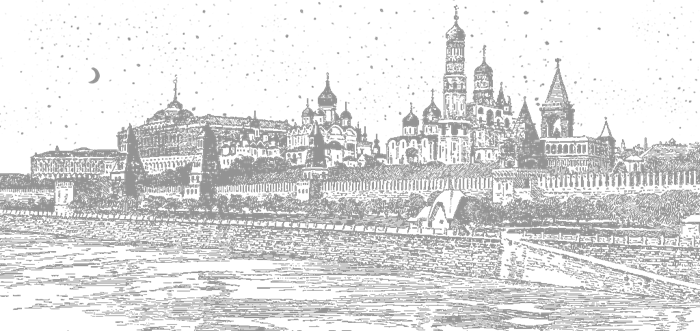Writing style
His characters’ inner workings are incredibly complex and detailed; they’re often very intellectual or emotionally sensitive. There’s a lot of detail put into how they process their emotions, how they see other people, cycles of thoughts and moods they go through. Commenting on human nature, along with delivering themes, are the main purposes of his writing; unlike many authors of his league, he cares little for poetic flourish, “art for art’s sake”, writing something beautiful for the sake of beauty. His works are more psychological and philosophical than anything.
The subjects of his books are famously very gloomy, involving murder, suicide, deep existential and religious questioning, or even descents into insanity. In his own life, he experienced a mock execution, four years in a Siberian labor camp, a gambling addiction, the death of his son, and numerous other stresses and misfortunes. After a few books, you may also notice a deep sense of dread and hopelessness underlying all of Dostoyevsky. A feeling that the world is filled with stress and relentless suffering, unfulfilled yearning, and that everything is only going to get worse here on Earth. But that one day, someday infinitely, almost impossibly far away, God will save us and we’ll all find happiness and peace. There’s always a small trace of hope in Dostoyevsky, embodied in fervent religious faith, but it’s mingled with desperation.
 Not to say that his books are hundreds of pages of fatalistic raving, there are a lot of really funny or happy moments as well; this is just what lies beneath all of his books. But personally, I like Dostoyevsky’s darkness because it seems realistic, life isn’t all sugar cookies and tea parties, after all. And, to quote the man himself, “Suffering and pain are always obligatory for a broad consciousness and a deep heart.”
Not to say that his books are hundreds of pages of fatalistic raving, there are a lot of really funny or happy moments as well; this is just what lies beneath all of his books. But personally, I like Dostoyevsky’s darkness because it seems realistic, life isn’t all sugar cookies and tea parties, after all. And, to quote the man himself, “Suffering and pain are always obligatory for a broad consciousness and a deep heart.”
The prose itself is said to be rambling and nervous. Dostoyevsky had strict publishing deadlines and had to write quickly, which was stressful. Also, he didn’t write the individual words himself; he dictated aloud what he wanted written to a person at a typewriter.
Most common themes
- The heart vs. the mind: Dostoyevsky characters may have ambitions or mindsets which, while perhaps logically sound, conflict with their hearts and emotions. In these conflicts, the heart usually triumphs.
- Criticism of the Enlightenment: Dostoyevsky looked down on modern Enlightenment ideas and nihilism, believing them to be soulless and incompatible with the inherently irrational, emotional nature of humanity. For example, he once stated that “if there were no God, people would create one”, even though that isn’t a logical thing to do, out of spiritual yearning for a symbol of hope. He also believed that the Enlightenment was encroaching on our sense of individuality. It was often argued in his time that people are purely the sum of their surroundings and experiences, and that they have no free will; and that, as a result, you cannot blame people for what they do. He criticized this, saying that it made people feel shameless, entitled, and like they could never be guilty of doing wrong. And he was critical of the Industrial Revolution in general, stating that, while modern technology facilitated international connections, it made us more isolated from one another than ever.
- The consequences of overthinking: This aligns with his criticism of the Enlightenment. Characters who spend too much time thinking become unhappy and unhealthy, and often meet bad ends.
- Unconditional love: some of his characters have endless, selfless compassion and love for others, as if those people were their own children. The rewards and dangers of such love are discussed in his books.
- Faith: His books discuss the spiritual necessity of God, Christian love, the contrast between Orthodoxy and Catholicism, or generally allude to Christianity (The Idiot is about a selfless man who is “cruicified” by Russian society.) Therefore I would recommend Dostoyevsky to those open-minded to religious discussion, including atheists. (I started reading his books as an atheist.)
- East vs. West: although this never serves as a main theme in his novels, it aligns with his opposition to Catholicism and the Enlightenment. Sometimes in his books, he discusses how Russians act as opposed to Westerners, or the role he believes his country has in the world. This theme is strongest in The Brothers Karamazov.
 Not to say that his books are hundreds of pages of fatalistic raving, there are a lot of really funny or happy moments as well; this is just what lies beneath all of his books. But personally, I like Dostoyevsky’s darkness because it seems realistic, life isn’t all sugar cookies and tea parties, after all. And, to quote the man himself, “Suffering and pain are always obligatory for a broad consciousness and a deep heart.”
Not to say that his books are hundreds of pages of fatalistic raving, there are a lot of really funny or happy moments as well; this is just what lies beneath all of his books. But personally, I like Dostoyevsky’s darkness because it seems realistic, life isn’t all sugar cookies and tea parties, after all. And, to quote the man himself, “Suffering and pain are always obligatory for a broad consciousness and a deep heart.”